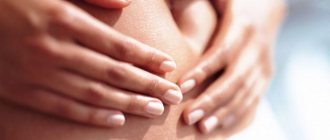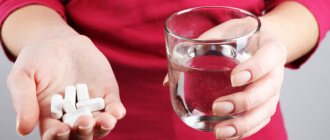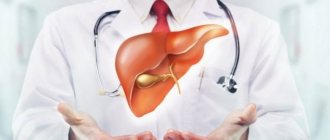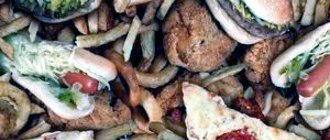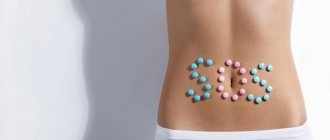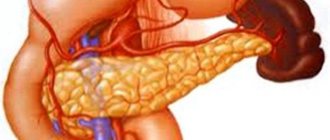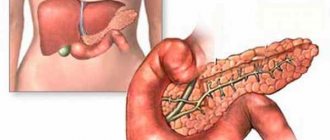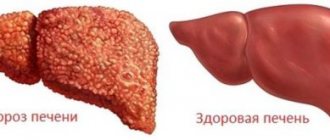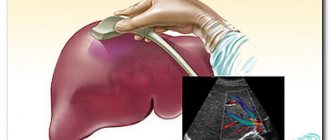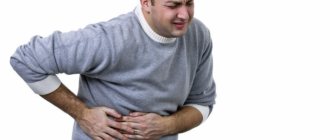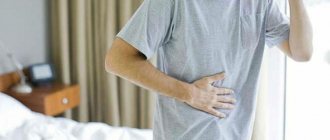Consequences of taking antibiotics
Antibacterial drugs can have a negative effect on organs, which causes the development of the following complications:
- Increased body temperature.
- Joint pain.
- Dermatitis.
- Enlarged spleen.
- Liver damage.
- Dysbacteriosis.
- Allergic reactions: rhinitis, tracheitis, skin reactions (redness, blisters), Quincke's edema, as well as anaphylactic shock and serum sickness.
Manifestations of anaphylactic shock: sudden loss of strength, shortness of breath, sticky cold sweat, drop in blood pressure, pale skin to cyanosis, vomiting, swelling of the mucous membranes, loss of consciousness and, in severe cases, death. All symptoms develop at lightning speed, medical assistance should be provided immediately.
Serum sickness is a reaction to the introduction of foreign animal protein into the body. It can also be caused by insect bites and medications such as antibiotics. This condition is characterized by fever, the appearance of a rash, aches in various joints and muscles, headaches, gastrointestinal upset, enlarged lymph nodes, etc.
In addition to the side effects of antibiotics, there are toxic reactions that usually appear after long-term treatment with large doses of antimicrobial drugs. They are associated with the effects of antibiotics or their breakdown products on a specific organ or organ system.
Entering the bloodstream from the gastrointestinal tract, the active ingredients of antibacterial agents enter the liver, where they are recognized as toxic. The detoxification mechanism is launched: enzymes break down “harmful” compounds, glutathione and glucuronide bind them, and then are excreted in urine or bile.
Drug-induced hepatitis, which is clinically no different from other types of this disease. The risk of its development is quite high already on the 5th day of taking antibiotics. When taking hepatoxic antimicrobial agents, whose metabolites are more toxic than the drug itself, reactive liver damage with severe necrosis and outcome in cirrhosis is possible.
Stagnation of bile is caused mainly by drugs of the cephalosporin group. Externally it manifests itself as skin itching, and internal changes include an increase in the viscosity of bile, a deterioration in its outflow and inflammation of the ducts.
After a long course of antibiotic therapy, patients often complain of a significant deterioration in health, headaches, nausea and weakness. Liver damage is manifested by dysbacteriosis, dermatitis, characteristic abdominal pain and a constant taste of bile in the mouth.
Diet food
Restoring liver function after antibiotics is impossible without proper diet and drinking regimen. Based on the patient’s condition, the doctor prescribes a certain type of diet. But there are also general recommendations that must be followed to clean the organ.
To support the liver after taking antibiotics, you must stop drinking alcoholic beverages, fatty, smoked, and spicy foods. It is necessary to cook by steaming or eating boiled dishes.
broths cooked on the bones of chicken, pig or cow; fish products and seafood; buckwheat, oatmeal and other cereals; grains (oats, soybeans, wheat); rye bread baked without yeast; fermented milk products; sour berries (cranberries, lingonberries) ;dried fruits;honey;nuts.
Mineral water will help cleanse the liver. The patient can undergo a therapeutic course in a sanatorium, or can conduct it at home. “Borjomi”, “Essentuki No. 17” or “Essentuki No. 4” are best suited. Before use, you must release the gas from the bottle. It is not recommended to drink water directly from the refrigerator; it needs to warm up.
To normalize the liver after antibiotics, you need to take special restorative drugs for two months.
To help the liver recover, it is recommended to take herbal medicines, including hepatoprotectors. Their action is aimed at protecting the organ from toxins and restoring functionality. Most often, the medicine is based on milk thistle extract, artichoke extract, and pumpkin seed oil. The effect appears with long-term use of the drug - no less than 2 months.
"Ursosan", "Urdoksa", "Ursofalk". Helps protect cell membranes from the negative effects of toxins, reduces the manifestations of the inflammatory process, restores the body's immune function, and stimulates the outflow of bile.
Medicines that include essential phospholipids: Essentiale Forte, Esliver Forte, Phosphogliv, Rezalut Pro. The drugs help liver cells recover and prevent the development of fibrosis.
You can cleanse the liver while taking antibiotics using traditional methods. But it is necessary to remember that traditional medicine is used in combination with the main treatment, since it is less effective on its own.
The main medicine that activates liver restoration is considered a decoction based on various herbs and berries. The most effective is tea made from milk thistle, chicory and corn silk. The number of herbs should be equal.
If your liver hurts after taking antibiotic medications, a decoction based on St. John's wort, chicory and calendula flowers will help cleanse it. Dried herbs are mixed. You need to take the same amount of each.
1 tablespoon of herbs is poured with 200 milliliters of boiling water. After the product has been infused overnight, it must be strained and drunk within 24 hours. Such cleanings must be done under the supervision of a doctor.
Today, modern medicine absolutely cannot do without the use of antibiotic-containing drugs.
After all, diseases of an infectious nature are difficult to treat without antibiotics. And the experience of their use indicates high statistics of recoveries and salvation from death of sick people.
We recommend!
To treat and cleanse the LIVER, our readers successfully use
Elena Malysheva's method
. After carefully studying this method, we decided to bring it to your attention.
Has a detrimental effect on vital bacteria of the digestive tract; Causes allergic reactions, side effects and complications; Weakens the body's protective properties; It disrupts the function of the excretory system, and the protection of the liver is weakened.
Antibiotics are extremely harmful to the liver, therefore, as a rule, they are prescribed in short courses. But even a short course can “hit” the organ. Fortunately, in most cases, liver-related complications do not occur. But with long-term use of antibacterial agents, the following diseases may develop:
- toxic (drug-induced) hepatitis;
- fatty liver hepatosis;
- cirrhosis of the liver.
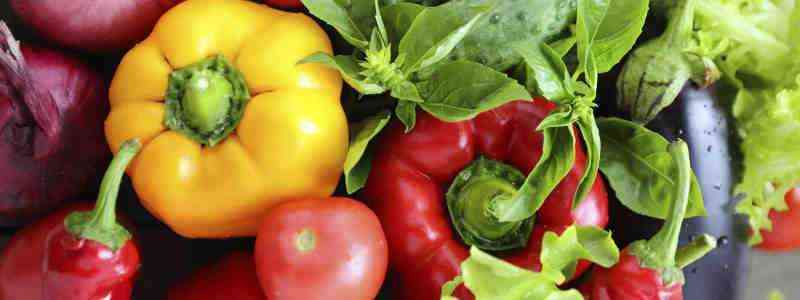
To restore the organ after taking medications, you should not self-medicate, it is better to consult a doctor.
Treatment of the liver after taking antibiotics should begin with laboratory diagnostics, in which it will be necessary to take general and biochemical tests of blood, urine, feces, and liver bile by duodenal intubation.
To detect changes, ultrasound examination of the liver and abdominal organs, computed tomography (CT) and magnetic resonance imaging (MRI), fibrotest are performed, and markers of viral hepatitis are identified.
The lesion can be determined by the results of tests for ALT, AST, alkaline phosphatase, and bilirubin. If the ALT value exceeds AST, then the liver cells are in a critical condition. Also, a sign of organ dysfunction and blockage of the bile duct can be considered if the concentration of alkaline phosphatase (ALP) is increased.
After the test results show abnormalities in the liver, immediate treatment begins. In order to cleanse it of toxins, you must first take your diet seriously. It is not recommended to eat fatty, spicy and fried foods, as they contribute to the accumulation of toxins in the liver cells.
Its condition should be maintained with natural products, fruits and vegetables. The most effective ingredients from these categories are grapefruit, apples and garlic. Thanks to their properties, fat deposits and toxins are reduced, cholesterol levels are stabilized, and hepatoprotectors are synthesized.
Ultrasound of the liver
Many sick patients ask gastroenterologists how they can protect their liver when taking antibiotics. Doctors prescribe preventive measures for them, which are aimed at protecting and supporting the organ.
It is strictly forbidden to drink alcohol during liver treatment with antibiotics. This is a huge load for the liver, which can lead to serious consequences and even death.
Diet food
Proper nutrition and diet
For any disease, as well as for its restoration and cleansing from antibiotics, it is necessary to adhere to a strict diet. It will not be possible to get by only with medications and folk remedies; all treatment must be comprehensive, that is, include all available means for cleansing the organ after a course of medications.

Proper nutrition
To cleanse the liver, you must first get rid of the factors that pollute it. That is, set up proper nutrition.
Proper nutrition includes:
- complete abstinence from alcoholic beverages;
- to give up smoking;
- refusal of fried and smoked foods;
- Do not eat fatty or spicy foods;
- You cannot add nutritional supplements to your diet;
- give up fast food products.
Taking the most effective medications will not help get rid of the disease, neglecting the factor of proper nutrition.
List of products that help quickly cleanse the body of drugs called antibiotics:
- warm mineral water;
- honey with nuts;
- olive or flaxseed vegetable oil;
- buckwheat and oatmeal porridge;
- boiled seafood;
- fermented milk products and fresh milk;
- Rye bread;
- dried fruits;
- fruits and vegetables;
- light chicken broths;
- garlic;
- eggs.
Following a diet is very important, but you should keep in mind that you do not need to completely limit yourself in food. Overeating is also bad for the organ.
How to properly protect the largest gland in the human body?
Effects of drugs and recovery methods
Ultrasound of the liver
It was found that drinking mineral waters and staying in the fresh air in sanatorium-resort conditions are very useful for cleansing the liver.
Treatment of acute and chronic liver diseases is impossible without taking antibiotics. At the same time, you should not abuse alcoholic beverages and smoking, take only healthy foods and products without preservatives, and cleanse the liver in a timely manner using traditional medicine recipes. A healthy liver is the standard of a healthy body as a whole.
Restoration measures should begin with a thorough examination. Based on the test results, the doctor will draw up an optimal treatment regimen and monitor the process. It is unacceptable to take any medications on your own or use traditional methods. All actions must be agreed with a specialist.
DETAILS: Antibiotics for bronchitis and pneumonia
Treatment and restoration of the liver is complex. Usually the patient is prescribed a diet (table No. 5), hepatoprotectors in combination with effective and safe folk remedies and physiotherapy (massage, plasmaphoresis, balneotherapy).
Fermented milk and fermented products (especially sauerkraut). They restore the natural microflora of the digestive tract. Fresh and steamed vegetables, as well as fruits and berries rich in vitamin C.
They are also useful in dried form. Soups based on chicken or beef bone broth, lean meats and fish. The latter must be prepared by boiling, stewing or baking. Cereal porridges (especially buckwheat and oatmeal) as an independent dish or side dish.
During the recovery period, you should eat fractionally (that is, often, but in small portions). This will normalize the flow of bile and help food be better absorbed. You need to drink a lot, giving preference to still mineral water, freshly squeezed juices and herbal teas.
do not eat fatty, spicy or smoked foods, and also completely give up alcohol. You need to drink a lot and often, since large volumes of liquid contribute to the rapid removal of breakdown products of medications.
It is imperative to take drugs like Essentiale: phospholipids will protect hepatocytes from aggressive compounds and help them recover faster. By following these simple tips, you can take antibiotics prescribed by your doctor without worrying about your liver health.
Diet food
It is extremely difficult for an ordinary person to recognize the symptoms of liver damage. This gland has no nerve endings and therefore the brain does not receive any pain impulses. The manifestation of the following symptoms should be a reason to visit a doctor:
- nervousness, lethargy, weakness;
- loss of appetite;
- unexpected allergic reactions in the form of rhinitis, conjunctivitis, skin rashes;
- bitter taste in the mouth, nausea;
- joint pain, migraine;
- staining the whites of the eyes and skin yellow, and urine brown;
- increased body temperature;
- soreness of the lymph nodes;
- headache;
- changes in digestion (constipation or diarrhea);
- change in the color and consistency of stool;
- nagging pain in the right hypochondrium.
The development of anaphylactic shock is the most serious symptom that can lead to the death of the patient. It is characterized by:
- feeling of lack of air;
- weak pulse;
- severe weakness, lethargy;
- hypotension;
- cold, damp sweat;
- swelling of the mucous membranes;
- pale skin;
- dizziness, fainting.
Proper nutrition and correction of the drinking regime will help normalize the functioning of the gland after completing an antibiotic course. Compliance with the diet is an important condition in the process of organ rehabilitation.
- The importance of diet in liver diseases is undeniable. All unhealthy foods containing preservatives and dyes are excluded from the menu. Neglect of these rules leads to the fact that accumulated toxins will continue to destroy gland cells.
- Normalizing the drinking regime will help to quickly cleanse the organ. Medicinal mineral water, for example, Essentuki No. 4, 17, Borjomi, is extremely useful. You need to drink warm water without gases that are pre-released. Regular green tea also has beneficial properties. The amount of water you drink per day should be more than 2 liters.
- Taking medications is an integral part of recovery. Their therapeutic effect is aimed at eliminating accumulated poisons and normalizing the functioning of the organ. The course of drug therapy is long, and positive results appear 2 months after the start of treatment.
You can treat the liver after antibiotic therapy using the drugs presented in the table.
| Drug groups | Action | Name |
| Hepatoprotectors with ursodeoxycholic acid. | They have choleretic and cholelitholytic properties. | “Ursosan”, “Urdoxa”, “Ursofalk”, “Ursohol”. |
| Herbal medicines. | Restore cell membranes. | “Gepabene”, “Karsil”, “Ovesol”, “Hofitol”, “Liv 52”. |
| Essential phospholipids. | Rapid restoration of gland cells, preventing the appearance of tumors. | “Essentiale Forte”, “Heptral”, “Phosphogliv”, “Rezalut Pro”, “Esliver Forte”. |
- The use of folk remedies is another method of normalizing the condition of the liver. The use of herbal decoctions is an addition to the main treatment.
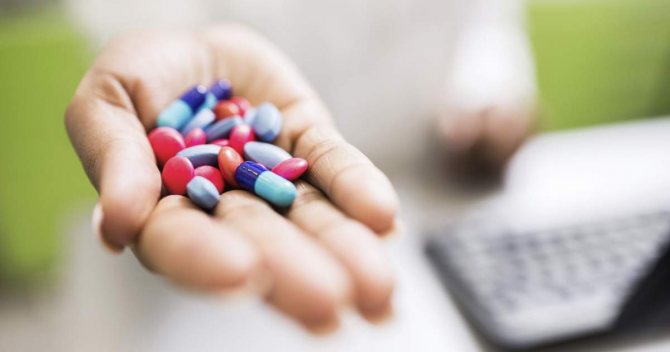
The herb milk thistle is a storehouse of flavonoids that are involved in the formation of enzymes. Herbal forms are available in any pharmacy.
The healing properties of milk thistle are enhanced with the help of corn silk and chicory root. Two teaspoons of the collection are poured with boiling water (250 ml) and left to steep for 12 hours. The prepared decoction is drunk immediately before eating.
Pumpkin is another crop that was used by healers to treat the liver in ancient times. It can be consumed boiled, added to cereals, salads, and flour products. To prepare a useful medicine, you will need a whole pumpkin, from which all the pulp is removed.
More recently, the medicinal effectiveness of cranberries has been proven. Doctors recommend rubbing the fruits with honey (1:1). Take 1 teaspoon of the mixture before meals 3 times a day.
Aromatherapy using essential oils has a positive effect. Fir, juniper, lavender, tangerine, mint, anise, and lemon oils are especially useful. They can also be used to take warm baths.
Liver treatment is carried out in several ways: through medication, diet, and traditional methods.
The first stage is taking specialized medications designed to protect the liver. Such drugs are called hepatoprotectors. From the very first days of taking antibacterial drugs, you should adhere to a diet.
This method of treatment involves taking specialized drugs with a protective function. Among them:
- Medicines based on phospholipids. These drugs are aimed at strengthening the walls of hepatocyte cells and reducing their permeability from the outside.
- Amino acids. The administration of these drugs involves an injection form, since the active substances are destroyed in gastric juice.
- Vitamins and minerals. To protect the liver, you need vitamins C, E, B. Taking such medications requires consulting a doctor, since an allergic reaction to vitamins often develops.
- Herbal preparations. Often such preparations are created on the basis of milk thistle and other medicinal herbs.
- Medicines containing ursodeoxycholic acid (restore hepatocytes).
Self-administration of the described drugs should be excluded. Prescriptions are determined only by a doctor and only during an in-person examination. In addition, the specialist must focus on the results of diagnostic measures.
Cleansing your liver involves changing your diet. If your liver hurts after taking antibiotics, you should eat the following foods:
- broths from poultry bones, beef, pork. These foods contain large amounts of naturally occurring amino acids;
- vegetable oils (sunflower, olive, flaxseed);
- fish;
- natural honey;
- porridges made from cereals that do not contain large amounts of gluten (buckwheat, rice);
- dried fruits of natural origin (not candied fruits);
- bread without yeast. Cereal products;
- berries;
- nuts;
- fresh vegetables and fruits;
- chicken, quail eggs;
- hot spices: turmeric, curry;
- garlic, onion.
When preparing dishes, preference should be given to boiling or steaming. This way you can retain the maximum amount of nutrients.
DETAILS: Nutrition for varicose veins on the legs: healthy and harmful foods for varicose veins
To restore the liver, the diet described is best suited.
Folk remedies
There are many effective recipes to cleanse the liver.
Onions with sugar. In a container, mix a kilogram of onion and 500 grams of sugar (about two glasses). Caramelize onions with sugar in the oven. The criterion for readiness is that the onion should acquire a pleasant golden color and completely caramelize with the release of syrup.
Cool, then transfer the resulting mixture to a clean container. Use the product one tablespoon once a day, half an hour before meals. The duration of treatment is 7-14 days. Store in the refrigerator for no more than a month.
Scheme of gland regeneration
| Carry out diagnostic measures to examine the liver | Conduct blood and urine tests (biochemistry); examination using ultrasound, tomography and endoscopic equipment. |
| Maintain muscle tone and eliminate anaerobic microorganisms (oxygen) | Avoid physical and psychological stress. Attend therapeutic gymnastics training and spend more time in the fresh air. Use physiotherapy: plasmapheresis with infrared rays, massage, balneotherapy, maintenance and restoration of the liver by taking mineral water: water with calcium, magnesium, sodium bicarbonate and chloride sulfate composition is recommended. Admission conditions are prescribed for sanatorium-resort treatment. |
| Maintaining a diet of food and drink | You should exclude large amounts of food intake and adhere to one-day fasts, while restoring the water balance by taking freshly squeezed juices: orange, pineapple, grapefruit, grape, cabbage, apple and tomato. Also, strictly avoid eating fatty, fried, smoked, spicy, salty and raw foods, alcoholic and carbonated drinks. Products with substitutes for natural ingredients have a negative effect on liver restoration. A lactic acid diet (kefir, low-fat yogurt and cottage cheese, acidophilus and sour cream) is recommended. |
| Hepatoprotectors and homeopathy | An excellent effect of restoring liver tissue is provided by such drugs as: “Karsil” (medicine in the form of pills, 35 mg, in a blister, two pills per day are recommended, for twenty-one days). "Heptor" (package contains 50 capsules), two capsules are prescribed at a time for about 14 days. "Fosfsonciale" (the package contains 60 tablets and is taken one unit twice a day, about 60 days). “Edas-113 Holeton” (a bottle with drops; add five drops to sugar or dissolve in water and drink three times a day for a month). “Hepatochilin” container with granules, 20 g (Drink one granule before bed, for 28 days). |
| Herbal medicine will help restore the liver after taking antibiotics | Today, there are many known ways to treat and support the liver with the help of medicinal plants. So, how to protect the liver: Ginger root powder, two grams, in three daily doses, for 15 days. Alcohol tincture of propolis: drink half a glass of water with two drops of tincture three times a day. A mixture of horseradish root: (50 grams), lemon juice (100 grams) and honey (100 grams), use the medicine, half a teaspoon on an empty stomach. Treatment with infusion of burdock roots: roots (25-30 g), crush and leave for one hour in half a liter of boiled water and take three tablespoons, after meals, up to three times a day. Garlic alcohol tincture: Peeled and chopped garlic cloves (400 grams), mixed with alcohol (250 ml), and in a dark, tightly closed container, leave for ten days, at a temperature of 18 degrees; make a squeeze and the resulting medicinal tincture, after two days we take it with milk (50 ml) according to the scheme: the first two days 6 drops (morning, lunch, evening), the second two days 15 drops, then 25 drops, throughout the day, until the end medications. |
| Treatment of the lymphatic system | A mixture of juices with honey: Freshly squeezed juice of cranberries, beets, lemons, pomegranates, carrots, taken two kilograms each, combine with honey (200 grams), store in the refrigerator until the end of use. For ten days, take two tablespoons of the mixture with warm, purified water before meals in the morning. |
| The medicine prepared and consecrated in the Belarusian Holy Dormition Monastery will tell you how to protect the liver | “Monastic syrup”: two tablespoons of Ginseng root extract, drink in the morning, on an empty stomach and before bed, for fifteen days with a week break and with the recommendation, do a cleansing enema, then repeat the course if there is no individual intolerance to the syrup components. |
It is very important to be attentive to your health, not to neglect the symptoms of the disease that have arisen, to be examined in a timely manner, to carry out gentle, restorative therapy for the body, to remember preventive measures for cleansing and supporting the liver, circulatory and lymphatic systems, digestive and genitourinary systems.
ATTENTION!
Many of our readers actively use a well-known technique based on natural ingredients, discovered by Elena Malysheva, to treat and cleanse the liver. We recommend that you check it out.
And then, in a healthy body there will be a healthy mind!
Do you still think that it is impossible to RESTORE YOUR LIVER?
Judging by the fact that you are reading these lines now, victory in the fight against liver diseases is not yet on your side...
And have you already thought about surgery and the use of toxic drugs that are advertised? This is understandable, because ignoring pain and heaviness in the liver can lead to serious consequences. Nausea and vomiting, a yellowish or grayish tint to the skin, bitterness in the mouth, darkening of the color of urine and diarrhea... All these symptoms are familiar to you firsthand.
But perhaps it would be more correct to treat not the effect, but the cause? Read the story of Alevtina Tretyakova, about how she not only coped with liver disease, but also restored it... Read the article >>
We recommend reading:
We recommend reading:
Yakutina Svetlana
Expert of the VseProPechen.ru project
Source: pechen-ne-boli.ru
Prevention of liver diseases
It is important to keep in mind that if you have had liver disease before, antibiotics should be taken with caution. It is advisable to stop taking these medications, however, if this is not possible, it is necessary to minimize the negative effects.
Antibiotics have a significant effect on the liver. However, fortunately, modern methods of therapy can reduce the effects of the harmful effects of these drugs and cure the organ.
It has long been known that preventing any disease is much easier than curing it. However, most people take huge doses of antibiotics and only think about the liver when pain appears and their general health worsens.
Unfortunately, it is impossible to refuse antibacterial drugs to avoid their side effects. Various infections top the list of reasons for visiting a doctor, and most often it is impossible to get rid of them without antibiotics. However, the harmful effects of antibiotics on the liver can be significantly reduced.
Selection of medicine
Antibacterial agents vary in severity of side effects and liver toxicity. If there is a need to take such drugs, you should study the information about them in detail and check with your doctor.
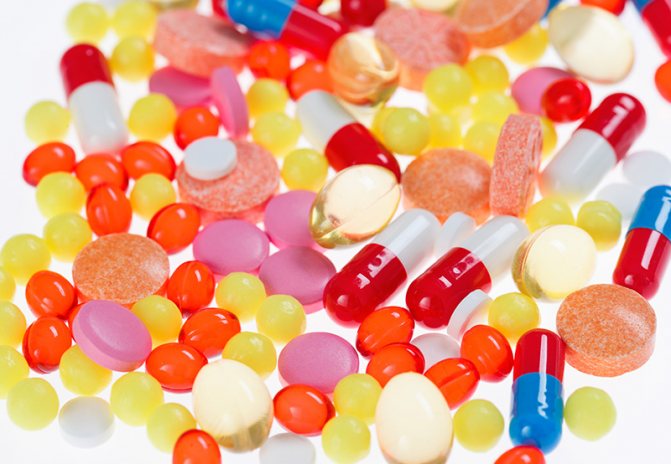
Usually the specialist himself warns about possible negative consequences and selects a gentle treatment regimen. Often, good antibiotics are quite expensive, but attempts to save money and replace them with a cheap analogue can result in serious problems.
Selection of medicine
Recovery after antibiotics Komarovsky. Application
Treatment of dysbiosis in a child is best done under the supervision of a doctor. Having studied the results of tests on the state of the baby’s intestinal microflora, he will determine the degree of dysbacteriosis. After this, bacteriophages, drugs that suppress pathogenic flora, will be prescribed. Only after taking them will the doctor recommend taking beneficial bacteria. Taking into account the degree of dysbiosis in the child, the pediatrician will determine the duration of the course of treatment and dosage of drugs. To restore healthy microflora, beneficial microorganisms are colonized in the intestines. The most common drug for the treatment of dysbiosis is Bifidumbacterin (it is available in both powder and liquid form). Lactobacterin is taken only after bifidobacteria have already been colonized in the intestines. Bifiform, Normabact, Floradofilus are also often used. Although all of these remedies are sold without a prescription, self-medication may not have the desired effect if it is not carried out comprehensively. Recovering a child after taking antibiotics also involves following a gentle diet. If you exclude yeast, fatty foods, fried foods from your diet, and reduce the consumption of carbohydrates, the intestines will recover faster. It is also recommended to avoid foods that contain preservatives, various dyes and other harmful additives. Do not give your child fast food, chips, carbonated drinks, chewing gum, or juices of dubious quality. Try to enrich your diet with light and healthy foods rich in fiber. Any porridge is welcome, except semolina, boiled or stewed lean meat - veal, beef, turkey, chicken. Fish and liver are also necessary, but it is better to steam or stew them. Give your child plenty of vegetables and fruits. Be sure to include cottage cheese in your menu; it is best offered in the morning. Before going to bed, let the child drink a portion of kefir or other fermented milk products. Natural juices and fruit drinks are welcome - apple, cranberry. They will help maintain your own microflora normal. Reduce your sugar intake if possible. You can use honey instead. Since dysbacteriosis causes a child to weaken, he needs to replenish his supply of vitamins. For one and a half months, the patient needs to take vitamins C and D, as well as B vitamins - B1, B2, B6, observing the prophylactic dose. The child should be given vitamins A and E, calcium and selenium in double dosage. The child’s weakened body needs restorative therapy. Lecithin will help with this. It enhances the production of red blood cells and also stimulates the liver, helping it remove harmful substances from the body. Taking lecithin is also important because it facilitates the absorption of certain vitamins and microelements - A, E, K and D.
How do antibiotics affect the liver?
slowing down the process of blood formation; weakening the liver’s protection from toxins; problems with the excretion of bile; insufficient accumulation of glycogen; small volume of synthesized proteins, fats and carbohydrates.
Symptoms
increased temperature; painful joints; inflammatory process on the skin; increased size of the spleen; problems with intestinal microflora; acute allergic reaction: rhinitis, tracheitis, redness, blisters on the skin, Quincke's edema, anaphylaxis, serum sickness.
sudden, unreasonable appearance of fatigue; frequent and difficult breathing; cold sticky sweat; excessive drop in blood pressure; pale skin tone turning bluish; nausea and subsequent vomiting; swelling of the mucous membranes; fainting.
Recovery after antibiotics in children. Pharmacy drugs list
After a course of antibiotics, it is imperative to restore the child’s body. Taking special medications after a course of treatment with antibacterial drugs will help restore the body's microflora and boost the baby's immunity. For very young children, there are liquid and powder forms of drugs that must be diluted with water. For children over 12 years of age, tablets or capsules can be used. Preparations that restore the body's microflora are called probiotics. They contain a high concentration of lactobacilli and bifidobacteria. They are the basis of the body's microflora, so doctors always prescribe probiotics after a course of antibiotics. Children's probiotics fight diseases after antibiotic use and boost the body's immune system. Probiotics help restore a child’s body after taking antibiotics. It is better to choose probiotics depending on the disease.
- If a child has dysbiosis, it is better to give the child probiotics containing bifidobacteria. Such drugs are most often prescribed to infants after taking antibiotics. The most effective drugs are considered to be Linex and Hilak Forte.
- Intestinal infections after antibacterial medications are best treated with combined probiotics. In such cases, pediatricians recommend undergoing a course of treatment with drugs such as Bifidumbacterin or Biovestin.
- When constipation occurs in children, Symbifer or Bifiform are prescribed.
All probiotics should be used only as prescribed by a doctor.
Mechanisms of liver damage
Hepatitis is an inflammatory process that develops in the liver under the influence of a viral disease. Blockage of the hepatic and portal veins by a blood clot. Fibrosis is activation of the growth of connective tissue in the liver and the formation of scars.
Cholestasis is a decrease in the amount of bile that enters the duodenum. The disease occurs due to problems with the excretion or formation of bile. Idiosyncrasy is an excessive painful reaction of the body to nonspecific irritants. Mixed reactions to the effects of antibiotics.
Of course, drug-induced hepatitis does not develop in every person who voluntarily takes certain medications. In some individuals, the likelihood of this pathology occurring increases significantly. Risk factors are:
- combination of several drugs, or polypharmacy. It has been proven that when a patient takes more than six medications, the likelihood of side effects reaches 80%.
- liver diseases.
- old age.
- pregnancy.
- genetic predisposition.
- incompatibility of certain drugs.
Among all antibiotics, drug-induced liver damage is most often provoked by tetracycline drugs.
Medicines and their breakdown products can cause the following damage:
- Direct toxic effect on liver cells.
- Toxic effects on the liver of medicinal metabolites.
- Immune response to liver tissue damage. A drug metabolite can be recognized as a hapten and bind to protein cells to develop an immune response.
The negative impact of antibiotics on the liver is manifested by the development of:
- hepatocellular necrosis;
- hepatitis A;
- liver fibrosis;
- neoplastic reactions;
- vascular reactions with the formation of thrombosis of the portal and hepatic veins;
- idiosyncrasies;
- cholestasis;
- mixed types of lesions.
How can you treat your liver?
To restore liver cell function, doctors prescribe hepatoprotectors. These include medicines based on plant components, essential phospholipids, and amino acids. The specialist prescribes them to the patient according to individual indications, immediately after drug therapy or together with it.
Of the herbal components, milk thistle significantly supports and restores the liver. An excellent drug from this group is “Karsil”, which protects hepatocytes from the effects of long-term drug use. It must be taken in a course that lasts about 3 months. “Silymarin” and “Silimar” also contain milk thistle extract, and also restore damaged liver cell membranes and promote new growth.
Essential phospholipids form the basis of the liver cell membrane, so drugs based on these substances contribute to the restoration of hepatocytes and improve their condition. And most importantly, they prevent the growth of connective tissue in the liver. A very popular and high-quality drug is “Essentiale Forte”, which contains such essential phospholipids in its composition.
Amino acid derivatives also prevent the development of medicinal hepatitis, these include the drugs “Heptor” and “Heptral”. They have a detoxifying effect, promote liver cell regeneration, and are antioxidants. The big advantage is that you only need to take amino acid derivatives for 2-4 weeks, depending on the initial condition of the liver.
Every patient should understand that they should not self-medicate. In any case, before starting to use hepatoprotectors, you must consult with your doctor, who will select the optimal drug, indicate the timing of administration and dosage.
www.kakprosto.ru
Effect of antibiotics on the liver
When taking these medications, our exocrine gland, the liver, experiences a tremendous impact.
Inhibition of hematopoietic function; Weakening of the barrier function (the liver is not able to process a large number of toxins after the death of harmful microorganisms); Disorderly release of bile; Poor glycogen accumulation; Lack of synthesized proteins, fats and carbohydrates.
In this case, there is a threat of an allergic reaction of the body (slagging of the liver after antibiotics can lead to Anaphylactic shock), as well as the threat of infection of a weakened organ with parasitic pathogens and, in severe cases, liver failure.
Allergy to antibiotics
In cases where the symptoms of illness are not very pronounced, many people do not listen to the body’s signals for help and do not think about the sad consequences after a dose of antibiotics. Therefore, it is necessary to remind how to protect the liver from antibiotics, warn about the side effects of these drugs and offer a system for supporting and restoring the gland and the body as a whole.
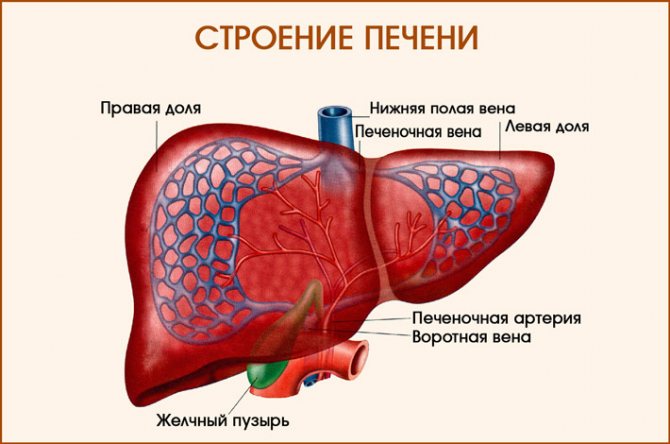
If a dose of an antibiotic is prescribed (only a doctor should do this), then it is advisable to make sure of its necessity, the effectiveness of treatment, side effects, and also take into account the condition of your liver at the beginning of taking it.
As a result of consulting a doctor, you can get the right to choose a treatment regimen, either alternative therapy (restoration with natural antibacterial agents: onions, black pepper, garlic, decoctions and tinctures of medicinal plants), or the need for treatment with synthetic antibiotics.
Long-term use of medications, as well as violation of the recommendations of the attending physician, can lead to disastrous outcomes. As a result, patients turn to medical specialists with complaints that their liver hurts after antibiotics, their temperature often rises, they experience irritability, insomnia and other unpleasant symptoms.
Headache
- pain in the right hypochondrium;
- frequent headaches;
- diarrhea;
- hearing and vision impairment;
- loss of mood, dizziness;
- nausea, vomiting;
- dysfunction of the genitourinary system.
In addition, the overall health of the body worsens, the intestinal microflora is disrupted, and immunity decreases.
Despite the negative impact of antibiotics, their medicinal components saved many patients with liver cirrhosis, complex forms of hepatitis, alcohol-induced organ damage, diseases of the gallbladder and bile ducts.
After long-term treatment with antimicrobial drugs, it is still recommended to monitor the condition of the liver and keep the body in excellent condition through natural foods and vitamins.
Liver protection in cancer treatment
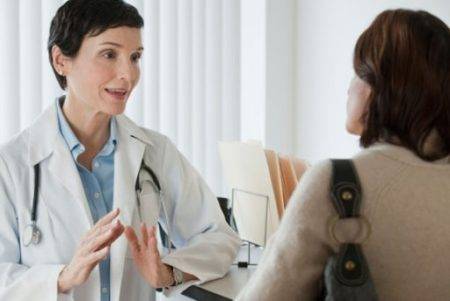
Oncopathology of any organ is a dangerous disease. The mortality rate for each type of cancer is different. The success of further treatment depends on the type of cancer, the presence of metastasis, the severity of the process and existing concomitant diseases. A number of techniques are used to treat oncological diseases - surgical interventions, radiotherapy and chemotherapy.
Medicines used in oncology are themselves extremely aggressive substances.
Chemotherapy kills tumor cells, but it has many side effects and interferes with the functioning of the liver and kidneys.
Complications after chemotherapy:
- fibrosis and fatty degeneration of hepatocytes;
- disturbances in the vessels supplying the liver;
- acute toxic hepatitis;
- tubular cholestasis;
- sclerosing cholangitis.
How to keep your liver healthy during chemotherapy? Before treatment, you need to discuss all the nuances, rules of behavior and preparation for aggressive drug treatment. Hepatoprotectors are included in the mandatory list of drugs that are indicated for chemotherapy. You need to take such tablets on the recommendation of your doctor. The choice of drug depends on the diagnosis and general condition of the patient.
Herbal treatment
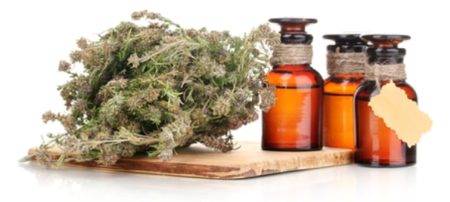
In addition to medications, you can support the liver with herbs during chemotherapy. But any herbal remedies and herbal preparations may have contraindications and side effects when used simultaneously with pharmacological drugs. Therefore, you should not make a decision about such treatment on your own.
Consultation with a specialist will help you choose medicinal herbs that will protect the liver and not harm the body.
Herbs with hepatoprotective properties:
- milk thistle seeds;
- lupine clover;
- immortelle;
- common chicory;
- elecampane rhizome;
- Solyanka kholmovaya.
To obtain a healing decoction from herbs or leaves, take 1 teaspoon of plant material and pour 1 glass of boiling water. Wrap up and leave to cool completely. A decoction of roots and seeds should be simmered over low heat for 10 to 15 minutes. Treatment with herbs during chemotherapy is a long process, so you will have to drink medicinal decoctions for at least 1 month.
moyapechen.ru
